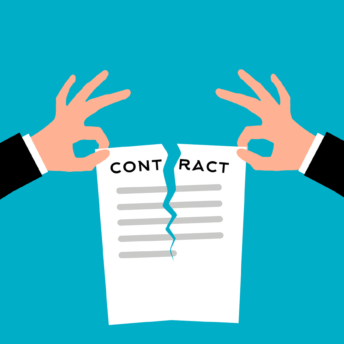An option agreement for land purchase option is a legal arrangement between a landowner and a prospective buyer of a site, generally a builder or developer. In essence, the option holder has the right to acquire the site from the landowner at an agreed-upon price and within a specified time period, assuming the option’s terms are met.
Option agreements benefit both landowners and developers: the landowner benefits from the developer’s promotion of their property for development, while the developer benefits from some certainty about future pipeline delivery, typically at a discounted purchase price to account for planning risks. In this article, what is an option agreement for land purchase, we take a look at the process involved and the options available to you.
Free Initial Telephone Discussion
For a free initial discussion on how we can help you deal with the legal implications of creating an option agreement for purchasing land, get in touch with us today. We are experienced in dealing with all forms of commercial property negotiations and we will review your situation and discuss the options open to you in a clear and approachable manner. Early expert legal assistance can help ensure you avoid the stress of dealing with these issues on your own. Simply call us on 0345 901 0445 or click here to make a free enquiry and a member of the team will get back to you.
Option Contracts
A developer and a landowner can enter into an Option Agreement, which gives the developer the option to acquire the land (usually at an agreed-upon amount or at market value less pre-agreed deductions), as well as the possibility to secure planning without being forced to do so. Additionally, landowners may benefit from entering into an Option Agreement since it enables them to achieve a greater price for their land without having to invest their own money in planning.
How can developers benefit from option agreements?
The most popular type of Option Agreement (dubbed a “call option”) enables developers to assess the viability of a prospective property.
Frequently, the developer retains the option to purchase the land in exchange for a fee. The developer can then apply for planning approval, certain that even if the application is denied, he or she is not obligated to acquire the land; nevertheless, if planning is approved and a viable project emerges, the developer has the flexibility to acquire the site on known terms.
A Notice of Option Agreement is registerable with the Land Registry, which protects the developer in the event the landowner sells the property to a third party.
What are the advantages of option agreements for landowners?
Landowners benefit from call options because they enable them to develop their property without the complications and costs associated with obtaining planning permission. Additionally, landowners benefit because the option price is frequently determined by the site’s practicality as a development site, resulting in a higher price reflecting the land’s planning potential.
Additionally, a special type of Option Agreement known as a “put option” may be utilised to compel a developer to purchase the land. While the landowner may be required to pay the developer an option fee, the landowner is not required to sell the land.
Put options, in contrast to call options, do not constitute a legal interest in the underlying asset and so cannot be registered with the Land Registry.
Identifying and avoiding possible pitfalls
Landowners frequently make erroneous distinctions between option and pre-emption agreements. While the latter provides the possible buyer with the right of first refusal in the event that the vendor decides to sell, an option agreement is a legally enforceable contract. In other words, regardless of whether other requirements have changed, you will be required to sell your land if you successfully complete the event that triggers the option’s execution, such as obtaining planning consent. This is why the agreement must be carefully drafted.
Numerous risks are connected with poorly worded option agreements, including the following.
Length of Contract
The normal period of an option agreement is three to five years but may be extended if a developer’s planning application is still pending. A timeline defining the developer’s responsibilities should be included to ensure that all stakeholders understand what is expected of them and when they will occur.
How is the purchase price calculated?
To avoid surprises, ensure that you understand how the acquisition price is decided and whether superfluous portions of the land are deducted or ‘allow’ the remaining development. Additionally, you’ll want to include terms in the agreement demanding that the plan proceed only when a specified amount of land or a specified sale price is attained.
What is Impact on unpurchased land?
Occasionally, a developer will seek to acquire land in stages (tranche development). As a result, you must verify that the option agreement grants you the unrestricted use of the land during the planning process. A tranche acquisition can have a significant impact on cashflow, and this must be explicitly stated in the contract.
Third party land interests
Before starting with an option agreement, it may be necessary to consult with additional third parties. For example, are any parcels of land subject to wayleave? Will you continue to have access to services following the land sale’s conclusion? Have you consulted your bank or the individual who has the initial charge on the property?
Tax implications
It is vital to consult your accountants and other professional advisers early in order to avoid surprise charges or tax penalties. The agreement must protect your right as the landowner to defer or postpone exercising the option if the tax system undergoes significant or detrimental changes.
Negotiating the price of the option
Typically, the purchase price method comprises a percentage decrease from the exercise price, as well as deductions for an option fee and planning promotion charges. Negotiating a price can be challenging, as no transaction is determined by competing bids on the free market.
As a result, negotiation must be held to determine the market value of the property by assessing the value of the completed development, the development’s costs, and the developer’s profit. It is also critical to consider local market conditions and comparable land transactions when estimating the value of a property. Following this bargaining process, the landowner and option holder may agree on a purchase price.
If the landowner and option holder cannot agree on a purchase price, the agreement should provide measures for resolving disputes. This typically entails the nomination of an independent expert or arbitrator who is both a chartered surveyor and a qualified individual. The experts may be appointed directly by the parties or through the RICS.
How we can help
We have a proven track-record of drafting option agreements for purchasing land. We will guide you through the process and ensure all checks are carried out swiftly and efficiently and we firmly believe that with the right solicitors by your side, the entire process will seem more manageable and far less daunting.
How to Contact Our Commercial Property Solicitors
It is important for you to be well informed about the issues and possible implications of drafting an option agreement. However, expert legal support is crucial in terms of ensuring a positive outcome to your case.
To speak to our Commercial property solicitors today, simply call us on 0345 901 0445, or click here to make a free enquiry. We are well known across the country and can assist wherever you are based. We also have offices based in Cheshire and London.





